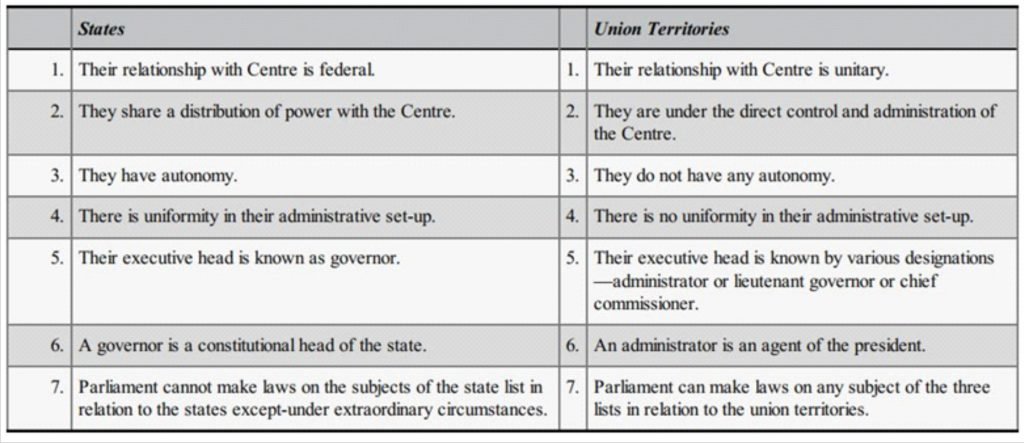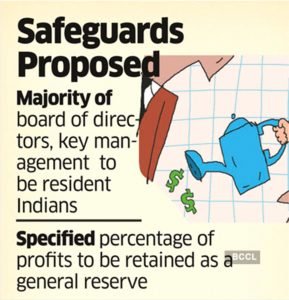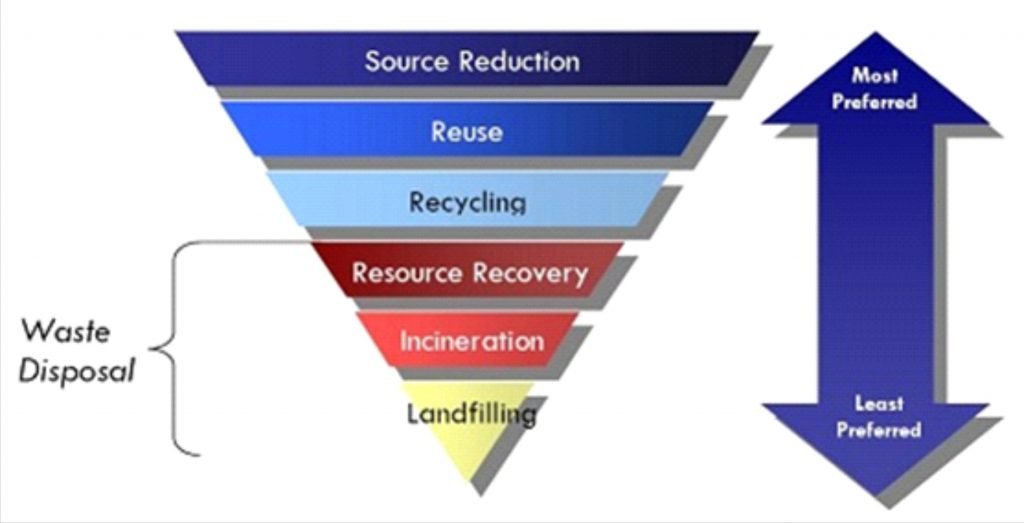Current Affairs (16th March 2021)
State Election Commissioners
CONTEXT:
- Recently, the Supreme Court said State Election Commissioners (SECs) across the country should be independent, and not persons holding office with the central government or a state government.
ISSUE:
- The Goa government had moved Supreme Court against a ruling of the High Court of Bombay at Goa which had quashed an order of the Goa government determining the reservation of seats in wards of five of the 11 municipal councils set to go to polls on March 20.
- The High Court ruling had come on a clutch of petitions filed by Goan residents urging the court to set aside a February 4 order of the Director of Municipal Administration in which, the petitioners alleged, wards were arbitrarily reserved and constitutional provisions mandating 33% seats for women and rotation of seats reserved for SC/ST candidates were not followed.
- The High Court directed the Director, Municipal Administration to carry out the reservation of the wards afresh “rectifying gross illegalities”.
- The Supreme Court upheld the ruling of the HC that was of the opinion that the course adopted by the state government violates the constitutional mandate of law in reserving one-third seats for women in all local body polls.
- It directed the state government to carry out the exercise of reservation of wards afresh and issue a fresh election schedule.
- The state government had mainly contended that the courts cannot interfere in the election schedule since they were imminent.
SC RULE:
- SEC in Goa was the state Law Secretary, the Supreme Court described it as the “most disturbing feature of the case”.
- The SEC has to be a person who is independent of the State Government as he is an important constitutional functionary who is to oversee the entire election process in the state qua panchayats and municipalities.
- They directed the Goa government to appoint an independent person as SEC at the earliest.

Centre versus state in Delhi
CONTEXT:
- The Centre introduced the Government of National Capital Territory of Delhi (Amendment) Bill, 2021 in Lok Sabha, reviving the dispute on the distribution of powers between the elected government and the Lieutenant Governor (L-G).
ABOUT BILL:
- In the “statement of objects and reasons” section, the Centre claims that the amendment Bill seeks to give effect to the Supreme Court’s interpretation and that it “further defines” the responsibilities of the elected government and the Lt Governor in line with the Constitutional scheme.
- Among the major proposed amendments, one makes it explicitly clear that the term “government” in any law made by the Legislative Assembly shall mean the L-G.
- This, essentially, gives effect to former L-G Najeeb Jung’s 2015 assertion that “Government means the Lieutenant Governor of the NCT of Delhi appointed by the President under Article 239 and designated as such under Article 239 AA of the Constitution”.
- The Bill adds that the L-G’s opinion shall be obtained before the government takes any executive action based on decisions taken by the Cabinet or any individual minister.
Purpose of 1991 Act serve:
- Delhi’s current status as a Union Territory with a Legislative Assembly is an outcome of the 69th Amendment Act through which Articles 239AA and 239BB were introduced in the Constitution.
- The GNCTD Act was passed simultaneously to supplement the constitutional provisions relating to the Assembly and the Council of Ministers in the national capital.
- For all practical purposes, the GNCTD Act outlines the powers of the Assembly, the discretionary powers enjoyed by the L-G, and the duties of the Chief Minister with respect to the need to furnish information to the L-G.
What did the Constitution Bench say?
- In its 2018 verdict, the five-judge Bench had held that the L-G’s concurrence is not required on issues other than police, public order and land.
- “It has to be clearly stated that requiring prior concurrence of the Lieutenant Governor would absolutely negate the ideals of representative governance and democracy conceived for the NCT of Delhi by Article 239AA of the Constitution,” the court had ruled.
- The L-G was bound by the aid and advice if the council of ministers.
- The status of the LG of Delhi is not that of a Governor of a State, rather he remains an Administrator, in a limited sense, working with the designation of Lieutenant Governor.
- It had also pointed out that the elected government must keep in mind that Delhi is not a state.
What will change if the amendments are cleared by Parliament?
- Encouraged by the Supreme Court verdict, the elected government had stopped sending files on executive matters to the L-G before the implementation of any decision.
- It has been keeping the L-G abreast of all administrative developments, but not necessarily before implementing or executing any decision.
- But the amendment, if cleared, will force the elected government to take the L-G’s advice before taking any action on any cabinet decision.
- The Bill seeks to add a provision in the original GNCTD Act, 1991, barring the Assembly or its committees from making rules to take up matters concerning day-to-day administration, or to conduct inquiries in relation to administrative decisions.
Does the L-G enjoy no discretionary power under the current arrangement?
- The L-G does have the power to refer any matter, over which there is a disagreement with the elected government, to the President under Article 239AA(4).
- The Delhi Law Secretary had in 2019 written in an internal memo that the elected government cannot use the Supreme Court verdict to keep the L-G in the dark about its decisions as that would prevent him from taking informed decisions on whether to invoke Article 239AA(4) or not.
- But the SC had also categorically pointed out that the L-G “should not act in a mechanical manner without due application of mind so as to refer every decision of the Council of Ministers to the President”.

Insurance (Amendment) Bill, 2021
CONTEXT:
- The Insurance (Amendment) Bill, 2021 seeking increase in the FDI limit to 74 per cent in the domestic Insurance Companies was introduced in the Rajya Sabha.
ABOUT:
- Union Finance & Corporate Affairs Minister introduced the bill which aims at amending the Insurance Act, 1938.
- The FDI limit in the Indian Insurance companies at the moment stands at 49 per cent.
- The Union Finance Minister had already made the proposal to enhance the FDI limit in the sector in her General Budget for Financial year 2021-22.
- The legislation seeks to achieve the objective of Government’s Foreign Direct Investment Policy of supplementing domestic long-term capital, technology and skills for the growth of the economy and the insurance sector, thereby enhancing insurance penetration and social protection.

Draft Plastic Waste Management Rules, 2021
CONTEXT:
- The draft Plastic Waste Management Rules, 2021, issued by the Union Ministry of Environment, Forests and Climate Change (MoEFCC) recently, has necessitated a few changes in the country’s handling of its plastic waste.
About:
- The amendment has extended the applicability of the rules to brand-owner, plastic waste processor, including the recycler, co-processor, etc.
- It will also include new definitions of:
- Non-woven plastic bag
- Plastic waste processing
- Single-use plastic (SUP) item
- Thermoset plastic
- Thermoplastic
- The Union ministry has proposed increasing the thickness of carry bags made of virgin plastic to 120 microns from 50 microns.
- It proposes a ban on the manufacture, import, stocking, distribution, sale and use of specific single-use plastic from January 1, 2022.
- These include plastic sticks for balloons, plastic flags, candy sticks, ice-cream sticks, and thermocol (extended polystyrene) for decoration.
- The draft is open for public suggestion for 60 days for consideration by the central government, following which it will be published in the Gazette of India.
- These rules may be called Plastic Waste Management (Amendment) Rules, 2021, and shall come into force on the date of publication in the Official Gazette.
Plastic waste in India
- As much as 3 million metric tonnes of plastic waste was generated in India in 2018-19, according to the Central Pollution Control Board (CPCB) report 2018-19. This roughly translated to 9,200 tonnes a day (TPD).
- The total municipal solid waste generation is 55-65 million tonnes; plastic waste is approximately 5-6 per cent of the total solid waste generated in the country.
- Goa has the highest per capita plastic waste generation at 60 grams per capita per day, which is nearly double of what Delhi generates (37 grams per capita per day).
- The annual report was compiled based on submissions from the state pollution control boards (SPCB), though the source of the data provided is unclear as no state-wise survey has been conducted so far.
- Clearly, we do not know the amount of plastic we generate as a country, as the increase in wealth and affluence contributes to a higher generation of plastic waste.
- Despite the Plastic Waste Management legislation of 2011, followed by numerous changes in the recent past, most parts of the country lack systematic efforts required to mitigate the risks associated with plastic waste.
- The states started providing data on the same only in 2018-19 for the first time. A legal obligation has been reduced to a mere formality, and there is a lack of concern, motivation, awareness, compliance and enforcement of the rules.
The way ahead
- Plastic, without doubt, is the miracle commodity that has uses ranging from increasing shelf lives of eatables to medical equipment and automotive. Managing plastic waste requires effective knowledge, not only among those who produce the plastic, but also among those who handle it.
- Brand owners, consumers, recyclers and regulatory authorities need to take long strides in ensuring that we first inventorise the total amount of plastic waste that we generate by means of proper calculation
- The second step would be to identify the avenues where the use of plastic can be minimised.
- Third, the brand owner and manufacturer should try and understand the fates a plastic packaging material would meet after its purpose of packaging has been served.
- Last, as consumers, we should ensure that all plastic waste leaving our homes is segregated and is not contaminated with food waste.


